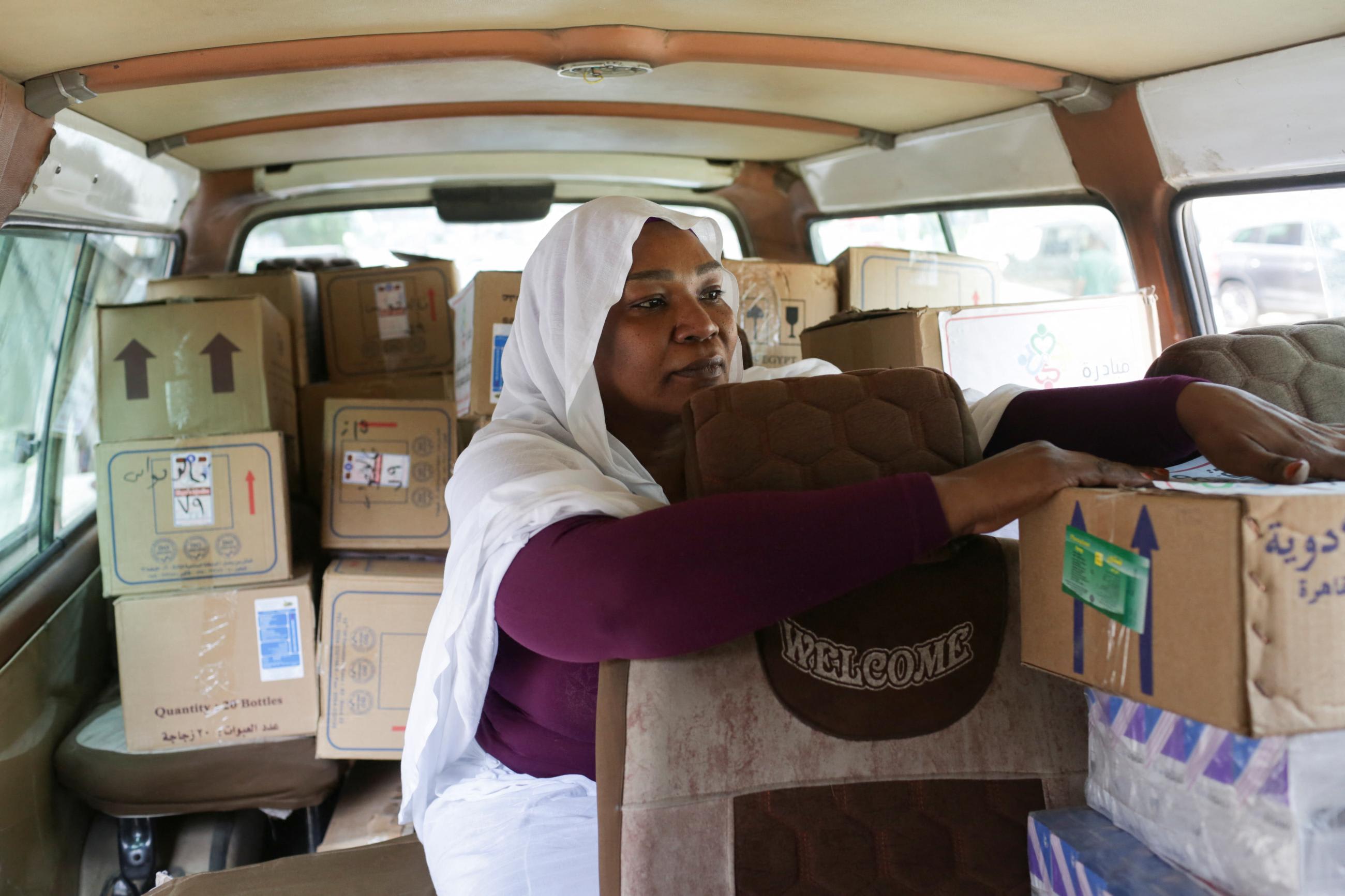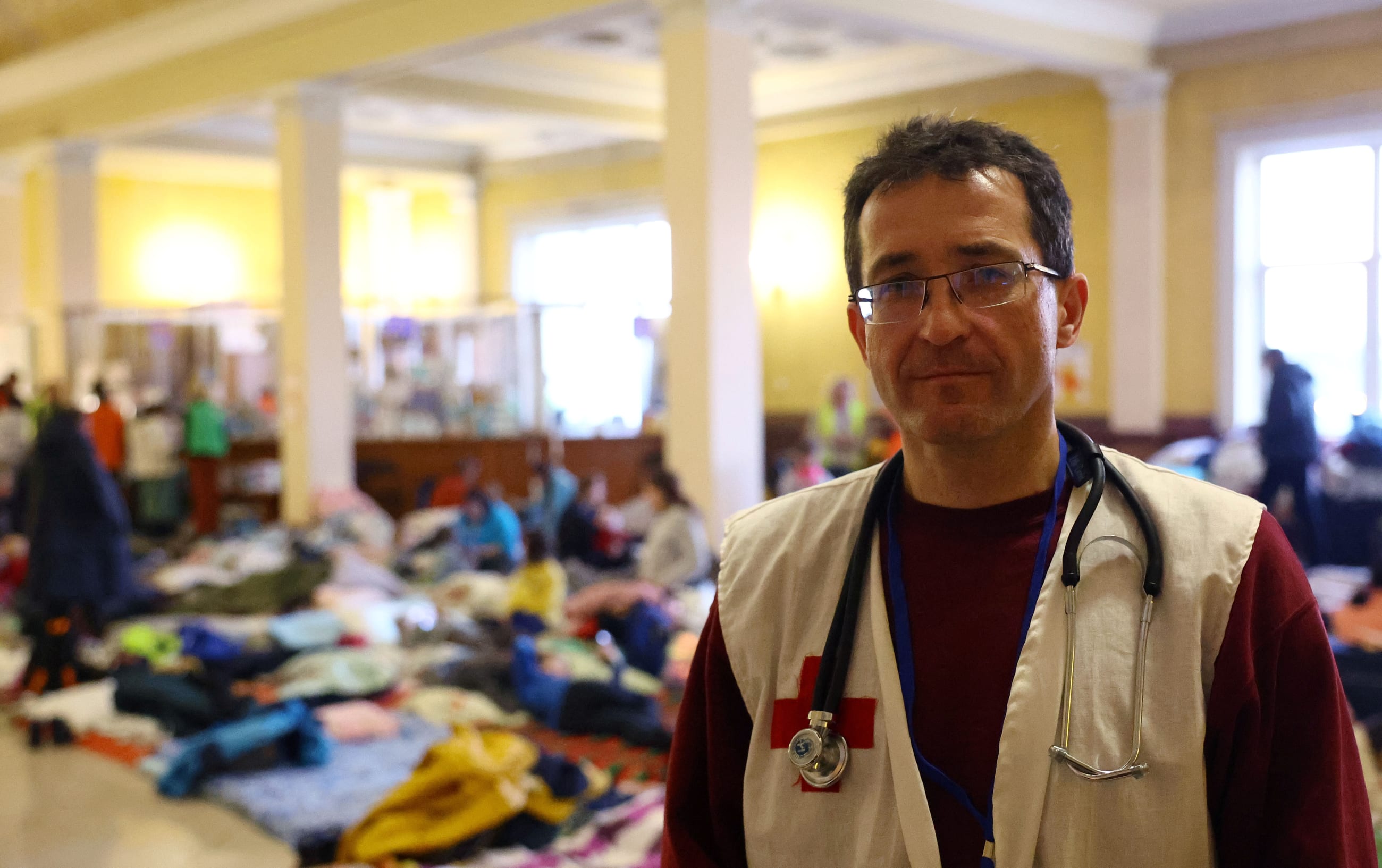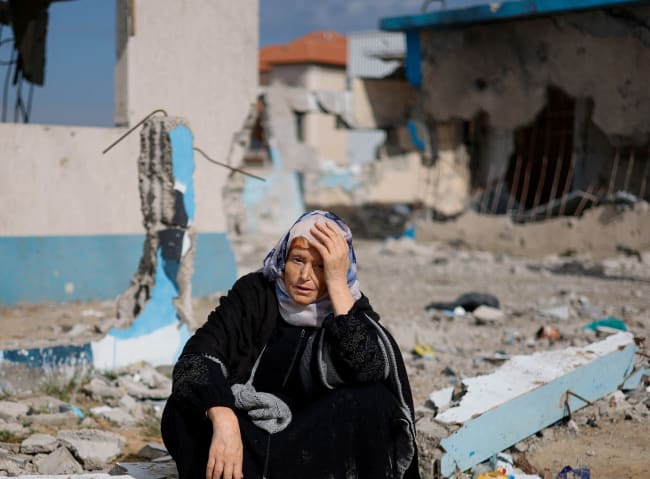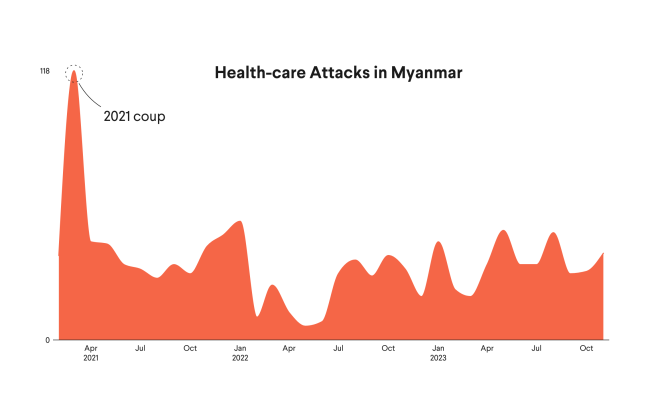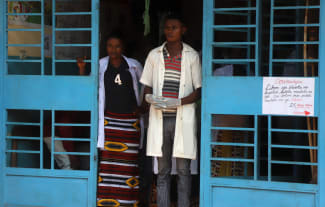A new report from Safeguarding Health in Conflict Coalition (SHCC) offers a tally of attacks against health-care workers in 2023, finding it was the deadliest year since the coalition's comprehensive reporting began nearly a decade ago.
SHCC documented 480 health worker killings last year, almost double the figure from 2022. The report draws on conflicts across 30 countries, the greatest number of killings taking place in Myanmar, Palestinian territories (including Gaza), Sudan, and Ukraine.
Doctors, nurses, ambulance drivers, and pharmacists were among those targeted or caught in crossfire. In Gaza, the number of health workers killed in 2023 was the highest of any conflict documented by the SHCC since its reporting began in 2016.
Health Workers Under Attack
Myanmar, Palestinian territories, Sudan, and Ukraine saw the greatest numbers of health-care workers killed in 2023
"We have seen a significant increase in the number of attacks on health care and disturbing trends, including the increasing use of drones against health-care facilities and the bombing and shelling of hospitals from the first days of the war and which persist throughout," Leonard Rubenstein, chair of the SHCC, lawyer and core faculty of the Johns Hopkins Center for Public Health and Human Rights and the Berman Institute of Bioethics, tells Think Global Health via email. "The erosion of health system capacity continues long after the level of violence diminishes."
A year and a half since peace was declared in Ethiopia, health workers remain scarce, few health facilities are operational, and lack of care has led to outbreaks of cholera, malaria, and measles. Given a severe drought in the region, the country's children also face a widespread hunger crisis. The report states that children, pregnant women, and those with chronic health conditions suffer the most when health care is hampered during conflict.
Health-care workers conducting vaccination campaigns have also been subject to attack in multiple conflict zones, leading to long-term consequences for global infectious disease control. In Pakistan, where polio is endemic, militant groups have targeted polio campaigns in drive-by shootings, emboldened by anti-vaccination propaganda.
In addition to spreading misinformation, social media increasingly shaped public sentiment toward health-care workers in 2023. In Sudan, for example, a neutral statement by Doctors Without Borders that neglected to name perpetrators of violence led to a negative reaction on social media, with some users expressing attacks on the group to be justified. The SHCC report's authors note that the extent to which private channels on social media may be used to organize violence against health workers is unknown.
States must take concrete steps to prevent attacks on health care and impose consequences for breaches of international law
Christina Wille, director of Insecurity Insight
"Open social media often exacerbates harms though widespread posts justifying attacks on health workers, such as by treating people deemed terrorists," emails lead author Christina Wille, director of Insecurity Insight, which led data collection and analysis for the report. "Social media platforms appear not to limit the spread of posts that directly undermine the provision of health care."
The report calls for renewed attention on the health-care crises in conflict zones.
"States must take concrete steps to prevent attacks on health care and impose consequences for breaches of international law," Wille says. "Reforming military training of frontline troops to demand respect health care, fixing deconfliction processes for protection of health facilities and transports, and training managers of health services in negotiation and preparedness are all important."
The report follows recent arrest warrants for Israeli and Hamas leaders by the International Criminal Court over alleged war crimes in the region. The warrants do not name attacks against the health system in particular.
"There must be an end to impunity," Rubenstein adds. "We have yet to see an international prosecution specifically focused on attacks on health care; without accountability, all people in war zones, and especially the most vulnerable, will continue to suffer."
